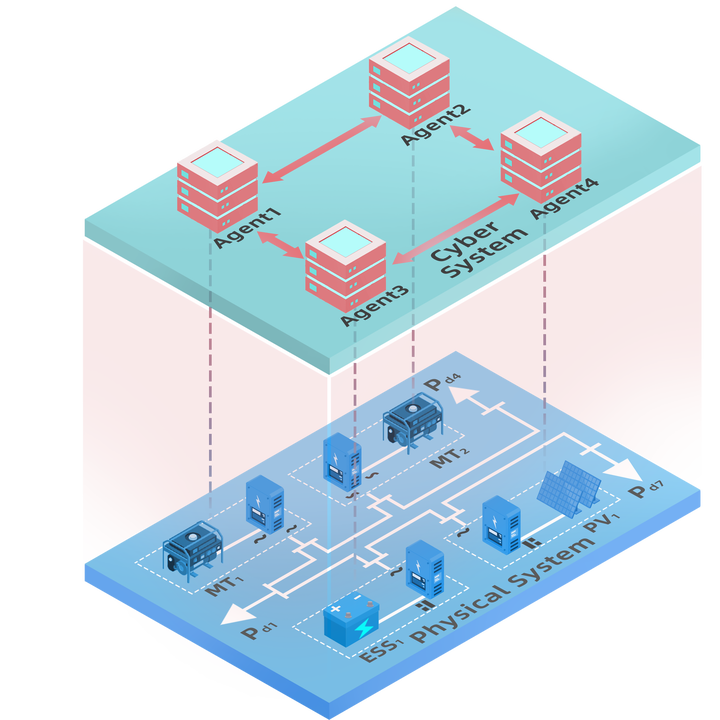Modeling of time-delayed distributed cyber-physical power systems for small-signal stability analysis

Abstract
Compared with a power system under centralized control, a power system under fully distributed control has stronger interdependence between its physical side and cyber side. Such a system is a typical cyber-physical system (CPS). The time delay problem is one of the most critical issues in the application of distributed control for power systems. First, a distributed information flow model is established considering multiple sources of time delay, especially the communication delay between neighboring agents. Second, combining the dynamics of physical power systems, a general model of time-delayed CPS under fully distributed control is proposed, especially for inverter-based microgrids. Third, the stability of the time-delayed CPS is analyzed based on the proposed model with a critical eigenvalue tracking algorithm. A real-world microgrid with DGs under fully distributed frequency control is tested for small-signal stability analysis. The findings show that the stability of the distributed CPS with multiple sources of time delay depends on not only the absolute value of time delays but also the coordination of time delays and that the delay merging property in centralized mode is not relevant in a distributed CPS. The accuracy of the model and the obtained stability margin are verified by Simulink simulations.<\p>